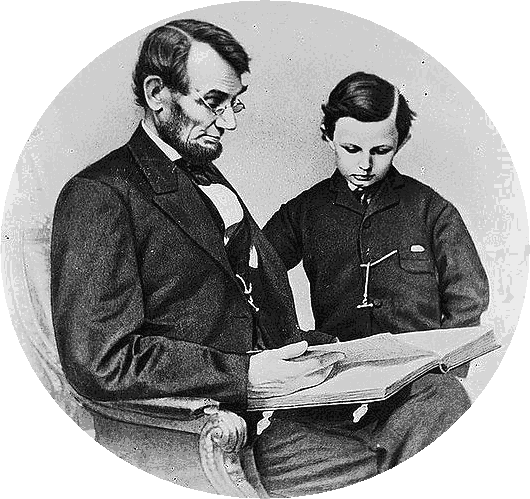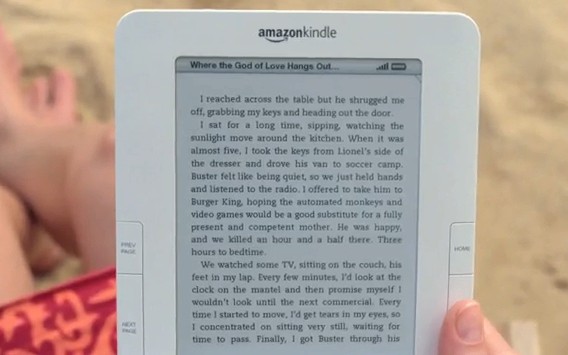
I remember the day when I almost met President Clinton. He was helping a school in my town install the cables for internet access in 1996 — along with Al Gore — and I was covering the event for a local alternative newsweekly. Some of the volunteers that day wore t-shirts that said “I connected our kids to the future.” And in the teacher’s lounge, I’d found the left-behind remains of sandwich from a local deli, with the word “president” written on a plastic cover. (It was left behind under a sign which read “Your mother doesn’t work here, so clean up after yourself!”)
It was a weird moment, when I realized that when there’s a new technology, we’re all “pioneering” our way towards it together. And 14 years later, when that future finally arrived, I feel like we’d ended up doing it again, moving together as an invisible group, this time towards a new reading technology. Shortly after the inauguration of President Obama, CNN reported that former President Bush had returned to Texas, where he was “meeting the neighbors, making trips to the hardware store, and catching up on some reading via a Kindle.” That same month, former vice president Dick Cheney revealed he also had a Kindle, and a few weeks ago, even Laura Bush told an interviewer that she has one too.
But it’s not just that the Kindle is being used by a handful of White House occupants. After receiving a $7 million advance, former president Bush released his new autobiography on Tuesday. By the end of its first day — counting pre-orders — he’d sold 220,000 copies and delivered nearly $4 million in book sales. But the former president also discovered that nearly 23% of his readers were buying it as an ebook!
A new world may be emerging — an accidental community of early adopters — since the publisher’s spokesman said the figures demonstrate the “rapid growth” of the ebook market. (I calculate that that’s over half a million dollars worth of ebooks sold in a single day!) The publisher also revealed that it was their highest one-day sales in six years — since they’d published the autobiography of former president Bill Clinton. But there’s also something significant about the fact that even Clinton’s biography is now available as a Kindle ebook, along with several by Ronald Reagan, and seven books by Jimmy Carter…
And tomorrow even president Obama is releasing a new book — and has also decided to make it available on the Kindle. It’s a children’s book called Of Thee I Sing: A Letter to my Daughters, and it’s got its own perspective on the way America has changed. It looks back to past presidents like George Washington and Abraham Lincoln, but also ordinary citizens who made a difference, likeMartin Luther King Jr., Helen Keller, Georgia O’Keefe, and Jackie Robinson. It’s fun to think that this will be the first generation of children who may be reading these classic stories of American history on a Kindle!
The world keeps on changing, both in big ways and in small. (One political blog reported that President Bush now seems more interested in his iPad than his Kindle, and according to his wife Laura, he’s “constantly” playing the Scrabble app.) But 10 years ago, The Washington Post once reported, there was an even bigger challenge confronting ebook author Barack Obama: obscurity! “In the summer of 2000 when he flew from Chicago to Los Angeles for the Democratic convention and no one knew him, his credit card bounced, and he left after a forlorn day hanging out as an unimportant face lost in the power-lusting crowd.”
It all goes to show that a lot can change in 10 years — both for politicians, as well as the rest of us!

